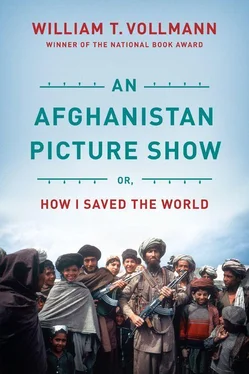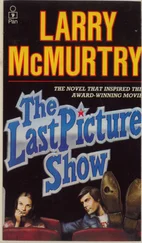It all sounded quite interesting, especially since I had just realized that open space was not in fact the life-pervaded medium which I had imagined. The softness of blown grass or willows or evergreens is not a genuine softness, because gravity and death make all living things hard. We do not all have skeletons, of course, for in marine environments particularly, where both of these rather stern considerations are harder to keep sight of in that hazy green light, any competent researcher can find the octopi, say, or the many phyla of benthic worms which do seem to manage without, but we are given a clue, by virtue of the documented failures of arthropoda and cartilaginous fishes, that all is not well nonetheless. And indeed, on consideration we see that even an octopus (most marvelously developed eyes of any of the invertebrates, said my biology teacher, Dr. Mawby) often lives and hides in a nice hard little GROTTO or CORAL FORMATION somewhere. It follows from my presentation that we are (all of us, vegetables, protists and animals alike) members of a great fraternity of scavengers — that we are either patches of mold or ants crawling through the fissures of some immense decaying skull: a familiar central range of mountains, their contours almost memorized now after long nights of study in the desert, eyes aching over the textbook … a series of deep ravines and broken ridges, the lowest of which, especially toward the west, are naked in aspect because we have picked them clean … a dry, invigorating atmosphere, at least where we are, in our bone-ivory tower built some distance above that rather creepy-looking eye socket (please, God, don’t let that be on Dr. Mawby’s exam): in short, the Land of Counterpane.
Sitting at my bleached college desk one summery evening, waiting to graduate on Sunday, I looked out the window, which was hung with white drapes, and could see only the night leaves (back-lit by streetlights) and the articulated branches from which they fanned like the skeleton of a hand. Everything was quiet, and I finally closed my eyes, sustained by the humidity that impinged on marine benthic organisms as currents bearing to eager gill slits the dissolved nutrients of rotting things in their richness — and that brushed, too, about the lonely corpse of that Russian cosmonaut, faintly crackling between the stars, as that scientifically undetectable but nonetheless palpable Ether that everybody had once believed in, and its swirlings made the frost sparkle now and then beneath his cracked and darkened helmet — what was his name? — as he circled round and round the deserts and poles of the world in a people’s soviet socialist tin can. — Had this really happened, or did it come from a science-fiction book I’d read? I didn’t even know that much.
Explanations [1]
“I still don’t understand why you want to go to Afghanistan,” my father said. “I guess I’ll never understand it.”
Actually it was very simple. I just wanted to comprehend what had happened there. Then I would put myself at someone’s service. I meant to be good, and was prepared to do good.
In my notebook, on the page of questions to be answered, I wrote: Is it possible that the invasion will be beneficial in the long run (increasing literacy through compulsory schooling, etc.)? For it was and is my habit to take everything at face value first.
Take religion, Lenin had said, or the denial of rights to women, or the oppression and inequality of the non-Russian nationalities … In our country they have been settled completely by the legislation of the October Revolution. We have fought and are fighting religion in earnest. We have granted all the non-Russian nationalities their own republics or autonomous regions. We in Russia no longer have the base, mean and infamous denial of rights to women or inequality of the sexes, that disgusting survival of feudalism and medievalism, which is being renovated by the avaricious bourgeoisie …
I had never been to the Soviet Union, although I had always wanted to see Tashkent with its fountains and roses, Gorki, Leningrad, Western Siberia (“the land is fabulously rich in reindeer and luxurious furs”)… So it was possible that face value was honest value, that this multinational republic had succeeded in ending starvation, in making books available to all, in giving women a fairer chance ( we could not even pass the Equal Rights Amendment!), and that the Afghans, too, could hope someday to serve on the Supreme Soviet in their national costumes — and why shouldn’t Afghan women be granted formal equality? — But maybe that consideration did not apply in Afghanistan; maybe wearing the veil was what was right there. If so, the Soviet re-educators should leave them alone. — And what about this business of “fighting religion in earnest”? I did not much like that. It seemed wrong to strike at someone else’s faith (if, indeed, that was what the Soviets were doing, for again our newspapers might be distorting things). Most disturbing, of course, was the fact that the upward evolution had to be forcibly sponsored.
At the university I had met an old Maoist who was visiting through some exchange program or other; in the kitchen late one night I asked him about the liquidation of the landlords in China, for I was sure that that had not been right.
We were alone, and the kitchen light was very bright. The night was hot. Crickets chirped. The professor said, “Maybe it could have been done eventually without the liquidations. But I doubt it. Once their land was expropriated, would they have been content with that? Why did they have more land than the small peasants in the first place? If we left them there to make trouble in the villages, you can be assured that they would have gotten their neighbors in debt to them again; they would have schemed to do it. The land would become theirs again. So there was no other way to do it.”
“Do you think that the executioners should have been sorry?”
“No,” he said, “I don’t think so. But I had nothing to do with it.”
Later I remembered Vlad IV of Romania, who had abolished poverty by burning up the poor. I wondered how well and for how long this had worked.
* The dislikes we have are such a mystery! My friend Seth was always terrified of whales, although he never met any, and I once met a little Afghan girl who screamed whenever she heard an airplane. Later I found out that an airplane had killed her parents and transformed her into a paraplegic.
3. DIFFICULTIES OF THE MIRACLE WORKER (1982)
And when they meet those who believe, they say, We believe; and when they are alone with their devils, they say: Surely we are with you; we were only mocking.
Allah will pay them back their mockery, and He leaves them alone in their inordinacy, blindly wandering on.
QUR’ĀN, II:2:14–15
Difficulties of the miracle worker
King’s “Restaurant” for lunch. He ordered chicken fry with nan . *The chicken was literally a skeleton in chicken-flavored oil. Evidently the bird had been boiled and boiled into soup, and somebody else had ordered the soup. — As he was a foreigner, he was brought a knife and fork. The waiter and the owner stared with almost religious interest at his attempts to eat with these utensils, which he had seen before in this life, but which had never been applied by him to such difficult usages. The skeleton swam about halfheartedly (if that is the right word) when his proxies pursued it through its frictionless bath. The liquid ran through the tines of his fork. A perfect drop of oil remained on each point after immersion, so every now and then he raised the fork to his mouth coolly, as if he were getting somewhere, and sucked at it. It tasted as if they had cooked the entrails and feathers along with the bones. Fishing politely for a velvety snippet of blood clot or rooster’s comb at the bottom of the dish, he accidentally overturned the skeleton and discovered some meat on the wing. The fork and knife could not pull it loose, however, as he hadn’t been raised in France or Italy, where in the afternoons you could watch old men peel a peach with their silverware, wasting scarcely a molecule of fruit-flesh as the skin came perfectly off; no, the Young Man was an American, and so finally he plunged his hand into the lukewarm oil to get at the skeleton, and he disarticulated the wing joint so as to free that sliver of meat. — The unsprung bone snapped fiercely against the dish, and his table jerked. — The waiter tch-tch’ed, though whether out of pity or offense it was impossible to say.
Читать дальше












